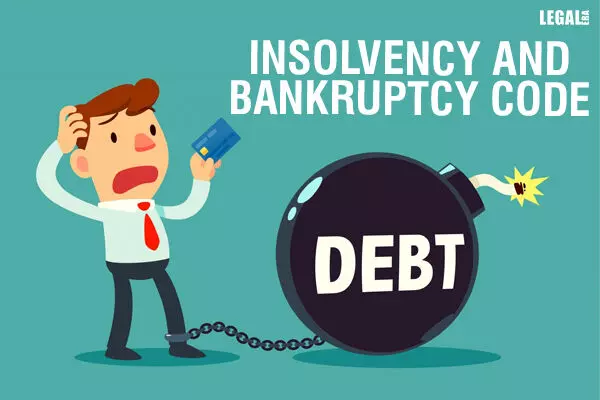- Home
- News
- Articles+
- Aerospace
- AI
- Agriculture
- Alternate Dispute Resolution
- Arbitration & Mediation
- Banking and Finance
- Bankruptcy
- Book Review
- Bribery & Corruption
- Commercial Litigation
- Competition Law
- Conference Reports
- Consumer Products
- Contract
- Corporate Governance
- Corporate Law
- Covid-19
- Cryptocurrency
- Cybersecurity
- Data Protection
- Defence
- Digital Economy
- E-commerce
- Employment Law
- Energy and Natural Resources
- Entertainment and Sports Law
- Environmental Law
- ESG
- FDI
- Food and Beverage
- Gaming
- Health Care
- IBC Diaries
- In Focus
- Inclusion & Diversity
- Insurance Law
- Intellectual Property
- International Law
- IP & Tech Era
- Know the Law
- Labour Laws
- Law & Policy and Regulation
- Litigation
- Litigation Funding
- Manufacturing
- Mergers & Acquisitions
- NFTs
- Privacy
- Private Equity
- Project Finance
- Real Estate
- Risk and Compliance
- Student Corner
- Take On Board
- Tax
- Technology Media and Telecom
- Tributes
- Viewpoint
- Zoom In
- Law Firms
- In-House
- Rankings
- E-Magazine
- Legal Era TV
- Events
- News
- Articles
- Aerospace
- AI
- Agriculture
- Alternate Dispute Resolution
- Arbitration & Mediation
- Banking and Finance
- Bankruptcy
- Book Review
- Bribery & Corruption
- Commercial Litigation
- Competition Law
- Conference Reports
- Consumer Products
- Contract
- Corporate Governance
- Corporate Law
- Covid-19
- Cryptocurrency
- Cybersecurity
- Data Protection
- Defence
- Digital Economy
- E-commerce
- Employment Law
- Energy and Natural Resources
- Entertainment and Sports Law
- Environmental Law
- ESG
- FDI
- Food and Beverage
- Gaming
- Health Care
- IBC Diaries
- In Focus
- Inclusion & Diversity
- Insurance Law
- Intellectual Property
- International Law
- IP & Tech Era
- Know the Law
- Labour Laws
- Law & Policy and Regulation
- Litigation
- Litigation Funding
- Manufacturing
- Mergers & Acquisitions
- NFTs
- Privacy
- Private Equity
- Project Finance
- Real Estate
- Risk and Compliance
- Student Corner
- Take On Board
- Tax
- Technology Media and Telecom
- Tributes
- Viewpoint
- Zoom In
- Law Firms
- In-House
- Rankings
- E-Magazine
- Legal Era TV
- Events
NCLAT Rules: SARFAESI Act Actions Halted By Interim Moratorium Under IBC

NCLAT Rules: SARFAESI Act Actions Halted By Interim Moratorium Under IBC
The National Company Law Appellate Tribunal (NCLAT), Principal Bench New Delhi, has ruled that once an interim moratorium is in effect due to insolvency proceedings against a personal guarantor under the Insolvency and Bankruptcy Code (IBC), 2016, banks are barred from continuing actions under the SARFAESI Act regarding the mortgaged property of the personal guarantor.
The ruling came in response to an appeal challenging a National Company Law Tribunal (NCLT), New Delhi order. The NCLT had directed the restoration of possession of a property, initially seized by Indiabulls Asset Reconstruction Company Ltd (the Appellant), to the Interim Resolution Professional (IRP).
The Appellant argued that their proceedings under Section 13(4) of the SARFAESI Act, 2002, began before the insolvency petition under Section 95 of the IBC. They had taken symbolic possession of the property on June 20, 2019, with physical possession later being granted by the District Magistrate and subsequently taken by the Tehsildar on January 27, 2021. Following this, an insolvency petition was filed against the personal guarantor, leading to the initiation of insolvency proceedings on January 7, 2021.
The primary question for the NCLAT was whether the SARFAESI Act proceedings were completed before the interim moratorium under Section 96 of the IBC came into effect, and if the moratorium affected the Appellant's rights. The Appellant claimed that symbolic possession vested them with rights to the property, and thus they should be allowed to proceed with disposal under the SARFAESI Act.
In its observations, the NCLAT cited a recent Delhi High Court judgment in Sanjay Dhingra v. IDBI Bank Ltd. & Ors., which held that the interim moratorium under Section 96 of the IBC does not affect a bank's rights if it has already taken possession of the property under the SARFAESI Act before insolvency proceedings. The Delhi High Court determined that since the bank had completed its possession actions before the insolvency proceedings began, the rights were vested and unaffected by the moratorium.
The High Court clarified that the interim moratorium is meant to halt legal actions concerning debts, not individual debtors. This view was supported by the Supreme Court's decision in Dilip B. Jiwrajka v. Union of India, reinforcing that the moratorium restrains actions related to debts rather than the debtors themselves.
Agreeing with the Delhi High Court's reasoning, the NCLAT dismissed the appeal, confirming that actions under the SARFAESI Act are indeed halted by the interim moratorium once insolvency proceedings are initiated.



